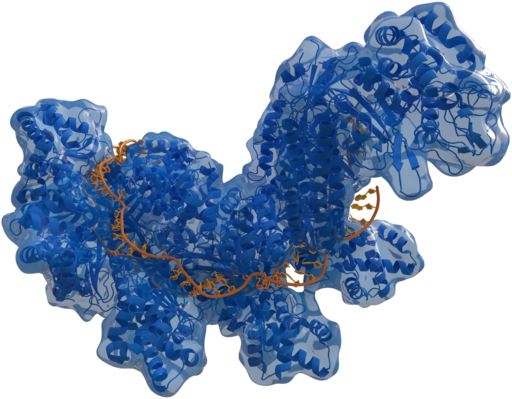In the article I chose, the author discusses how researchers have discovered and applied a unique use of a new frontier in cancer research: CRISPR genome-editing. This technology offers countless possible insights into tumor mutations, as well as amazing implications for cancer biology and future treatment.
The article begins by mentioning how tumors harbor hundreds of mutations in hundreds of different genes, each having the ability to drastically change the trajectory of tumor development, progression, and plausible response to cancer-related treatment. It also states how finding and screening these genes accurately (at least prior to this advancement) has been extremely limited. That is until now! MIT researchers have begun utilizing prime editing, a variant of CRISPR, consequently unlocking a tool for deciphering the genetic intricacies of cancer.
So far, the researchers demonstrated the capabilities of their technique by screening cells with over 1,000 different mutations and combinations of the tumor suppressor gene p53 – a lethal gene implicated in more than half of all cancer cases. Using prime editing, described as “faster and more efficient than any previous approach” by the author, enables precise editing of the genome, providing crucial information regarding the consequences of each mutation. The result: their findings were more than successful, revealing that certain p53 mutations, previously deemed benign, actually have both profound and adverse effects on cell and subsequently tumor growth. This discovery only further proves the importance of studying mutations with CRISPR as opposed to artificial systems,.
The potential of CRISPR extends far beyond p53. With its versatility and scalability, this technology could efficiently and effectively be applied to numerous other cancer-related genes and cases, offering understanding of tumor genetics and paving a new way for personalized cancer therapies that could operate with increases success.
In linking this back to our AP Biology curriculum, we can draw parallels to our recent study of genetics. We learned that even the smallest mutation in any of the gene related to reproductive processes (replication, transcription, etc.) can cause a ripple effect extending far beyond a single function, resulting in cataclysmic effects. The p53 gene, for instance, regulates cell division. This keeps cells from growing and dividing too quickly or in an uncontrolled manner through preventing transcription and activating p21 – a gene which inhibits cyclin dependent kinase, which hinders reproduction. If p53 has a mutation, none of this triggering would occur, and the cell would not go through apoptosis, but rather continue the cell cycle, making the mutation even more widespread. Not only this, but, also as we learned, the cancer cells would likely enter the bloodstream leading to even more tumors in numerous other areas.
Let’s continue this conversation—what are your thoughts on the intersection of CRISPR technology and cancer research?



Leave a Reply